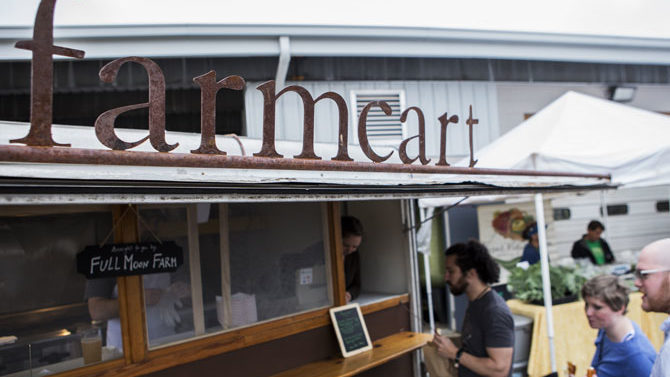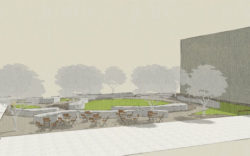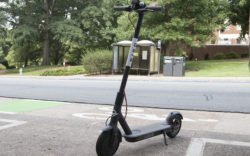Local food trucks mostly work special events on weekends, but several food truck owners told county staffers last week that they’d like to sell food downtown one day a week—and the county might provide parking spots for them to do just that.
Street sellers Kona Ice, Streets Cafe and Holy Crepe met with county staffers who, along with commissioners on the Government Operations Committee, hope to hash out regulations allowing the trucks to sell downtown, likely on Wednesdays or Thursdays, and likely beside City Hall along College Avenue and Washington Street.
“Food trucks definitely add to the diversity and vibrancy of downtown,” Commissioner Melissa Link said.
Some trucks might sell to a lunchtime crowd, while others could set up after the bars close, Central Services Director David Fluck told the Government Ops committee. Food trucks might also operate in county parks at selected times, but would not be allowed to compete with Little League concession sales, nor with downtown special events.
“We had a great meeting last week,” Fluck told commissioners. “We tried to take what we heard and distill that a little bit.”
County law already allows regulated sidewalk sales, but not sales from parked vehicles. It will take several months for the proposals to work their way through county government, toward eventual approval (presumably) by the full commission.
Fluck proposed charging the trucks a $200-per-year license fee, which he said is in line with other county fees; and a parking fee might be added on top of that. Construction vehicles, for instance, must pay for street parking. Parking spaces would be temporarily flagged to reserve curb space for food trucks, but since, because of pending legal questions, ACC doesn’t tow illegally parked cars, the county would depend on enhanced fines to keep spaces clear. [John Huie]
Sidewalks: Some neighborhoods want sidewalks but don’t have any. But sidewalks are expensive to build ($50 or more per foot) and quiet neighborhood streets don’t meet ACC’s criteria for building sidewalks with public money. So, let the neighborhoods pay for their own sidewalks?
That’s the plan discussed at last week’s Government Operations Committee meeting. If a neighborhood wants a sidewalk, and 65 percent of affected homeowners agree, the county could assess them (and also the other 35 percent of homeowners, like it or not) additional taxes to build the requested sidewalk. ACC already does this when a neighborhood requests speed humps or water lines, but sidewalks are expensive, and often homeowners don’t really know where their property lines are, noted Commissioner Andy Herod. Public street right-of-ways usually extend some distance into peoples’ front yards, and sidewalks would take up some of that yard.
“I think this has the potential to be a little bit more contentious,” Herod said.
Some commissioners also wondered why the county so often builds new sidewalks along roads that already have a sidewalk on one side, or whether developers can be forced to pay for sidewalks when new development brings more traffic. But those should be issues for another day, county staffers insisted.
Like what you just read? Support Flagpole by making a donation today. Every dollar you give helps fund our ongoing mission to provide Athens with quality, independent journalism.










